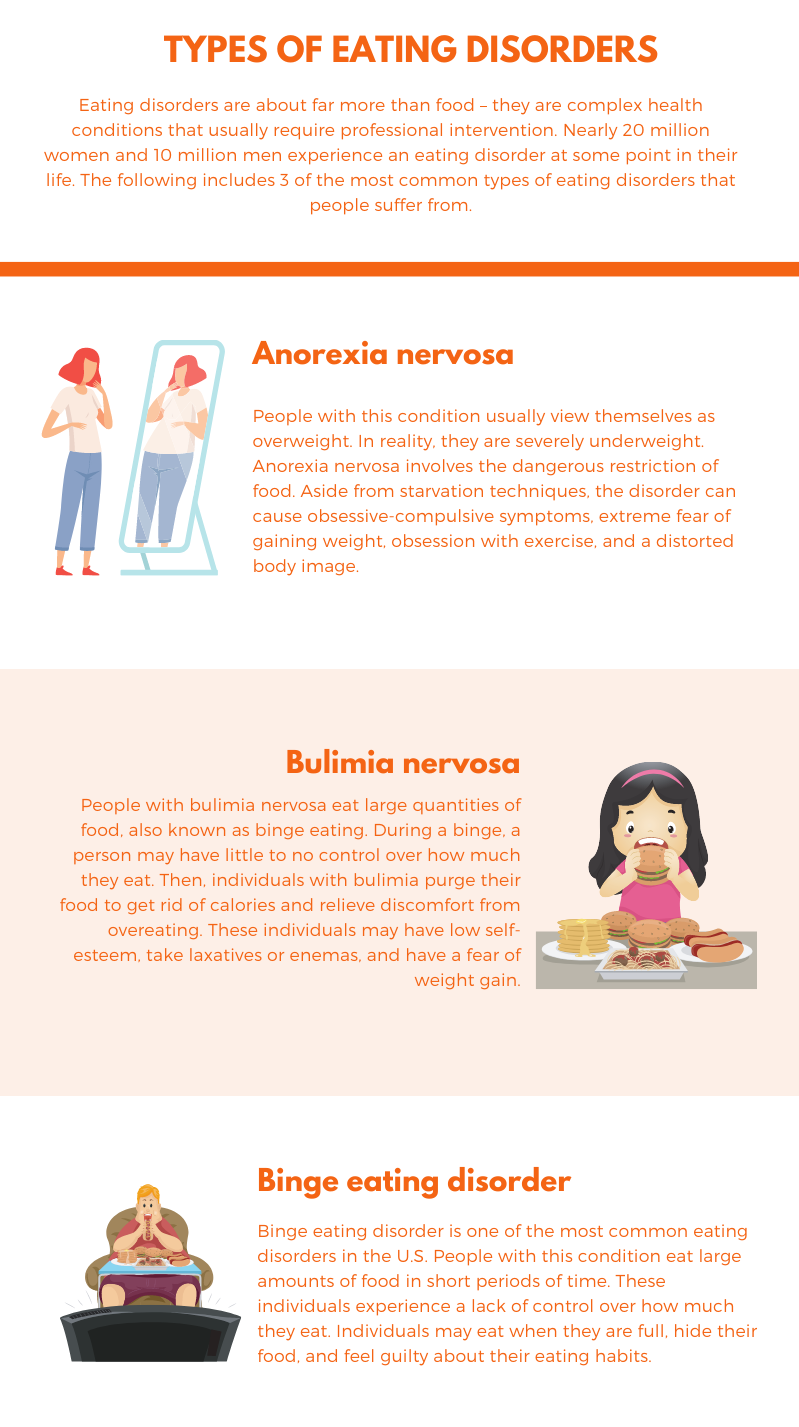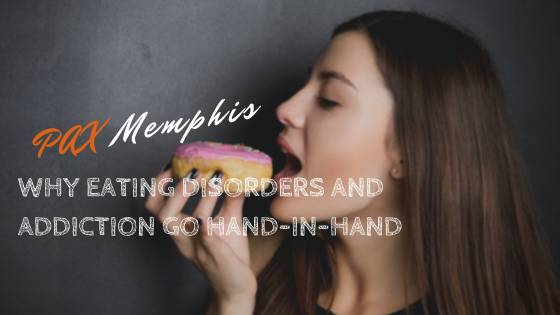Addiction and eating disorders commonly co-occur. Substance abuse may begin before or after an eating disorder manifests, but both disorders make each other substantially worse. Regardless of which came first, these disorders wreak havoc on the mind, body, and soul. As a result, those struggling with co-occurring addiction and disordered eating should seek treatment immediately.
The Link Between Eating Disorders and Substance Abuse
The National Eating Disorders Association (NEDA) reports that up to 50% of individuals with an eating disorder abuse alcohol or drugs. This is 5 times more than the general population. Furthermore, up to 35% with a substance use disorder also suffer from disordered eating. This rate is 11 times that of the general population.[1]
While people usually know that mental illness and drug abuse are associated, eating disorders are far more subtle. However, addiction and disordered eating share many of the same risk factors, such as:
- Family history
- Changes in brain chemistry
- Low self-esteem
- Depression
- Anxiety
- Societal pressures
In addition, some of the symptoms of eating disorders and substance abuse are the same. For example, people with disordered eating or addiction may display compulsive behavior, mood changes, and isolation.

Most eating disorders start with an unhealthy obsession with body image, food, or a range of psychological conditions and develop during adolescence or young adulthood. As a mental health condition, professional treatment is usually required to overcome disordered eating.
The Role of Substance Abuse on Disordered Eating
Due to the lack of control and the obsessive component of disordered eating, it is easy to see how eating disorders and addiction commonly co-exist. When people with eating disorders have trouble coping with their emotions, such as fear, guilt, shame, or insecurity, they may turn to drugs or alcohol to cope. Substances may seem like a quick-fix. However, this can become a dangerous habit.
In addition, some substances have specific side effects that appeal to people who suffer from disordered eating. Stimulants, like Adderall, cocaine, and methamphetamine, are known to suppress the appetite and aid in fast weight loss. Many people who suffer from eating disorders will either do everything to avoid eating or will do anything to try and stop binge eating. When they find out that stimulants seem like the answer to their prayers, many indulge. However, this is a dangerous habit. Not only can it lead to addiction, but it can cause detrimental damage to the body.[3]
Alcohol is also popular among people with eating disorders. It is so popular that it has its own slang term – “drunkorexia.” The term refers to eating patterns that involve weight control methods to compensate or offset the calories consumed while binge drinking. Similarly, many people who suffer from disordered drinking also experience anxiety. For some, alcohol can provide short-term relief from anxious thoughts. People who grow worried about their eating habits may calm their nerves with alcohol.
Combining substances and disordered eating can change brain chemistry in dramatic ways, causing both an addiction and an eating disorder to spiral out of control. It can also lead to devastating and potentially fatal health consequences, from malnourishment to overdose or starvation.
Recovery from Addiction and Disordered Eating
Living with addiction and disordered eating isn’t easy. While self-medicating may seem like the answer at first, substance abuse inevitably makes everything worse. Both conditions can cause much distress and damage. However, people who suffer from these conditions can get better with professional help. Many drug and alcohol rehab centers offer co-occurring disorder treatment that addresses both disorders. Get the recovery process started today by contacting an addiction specialist near you. You don’t have to hide one disorder or ignore it – you can treat and recover from both.
References:
Medically Reviewed: September 25, 2019

All of the information on this page has been reviewed and verified by a certified addiction professional.










